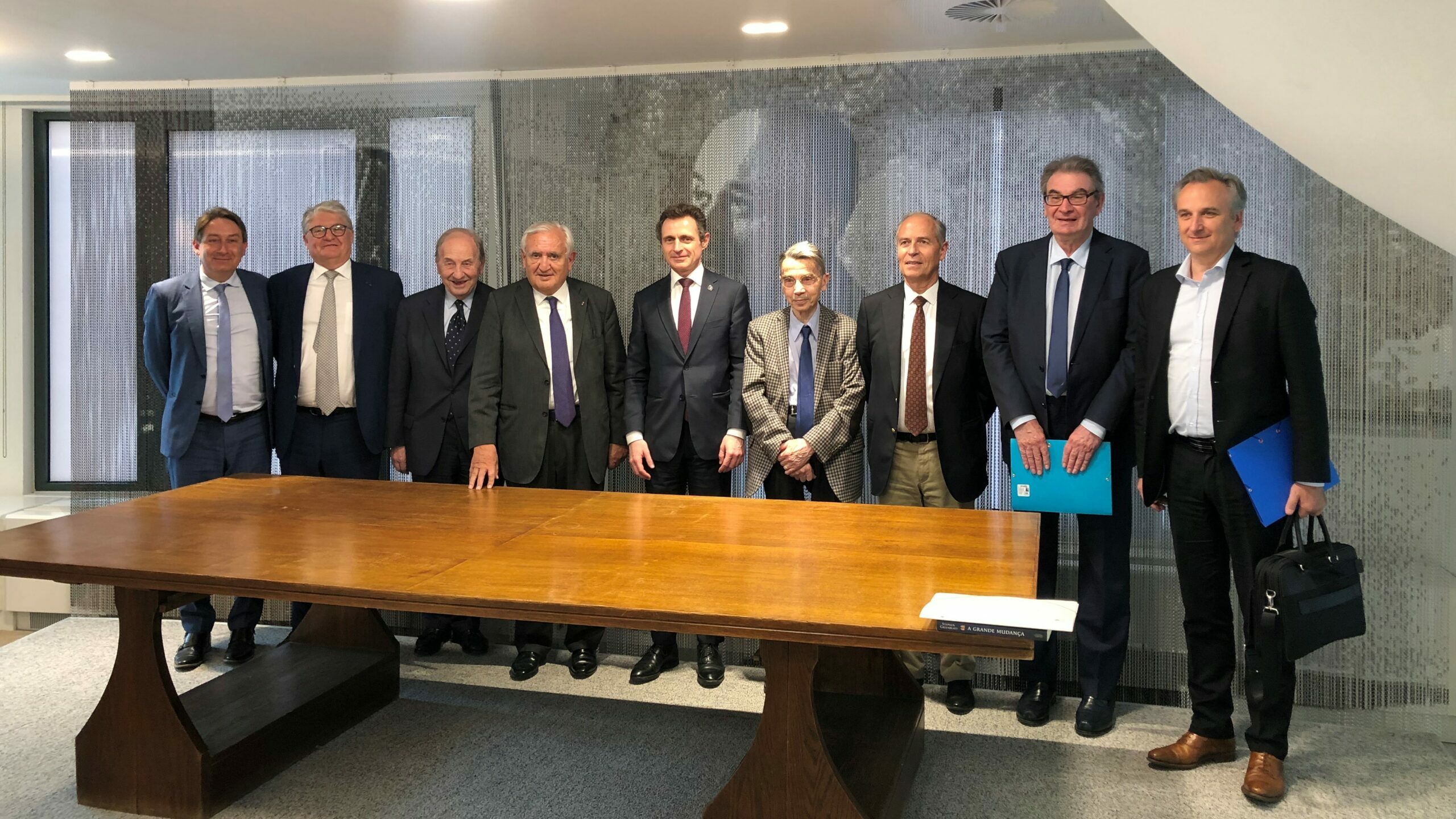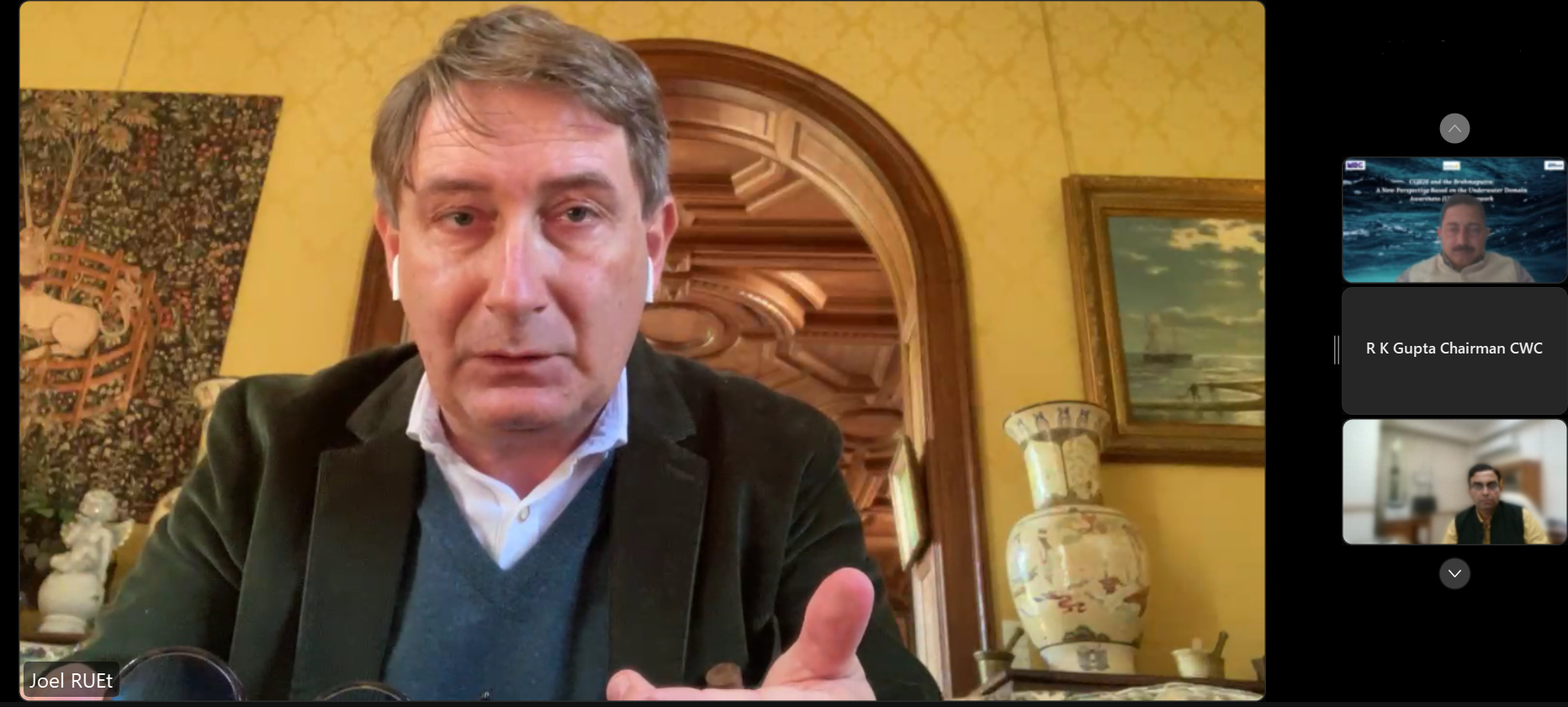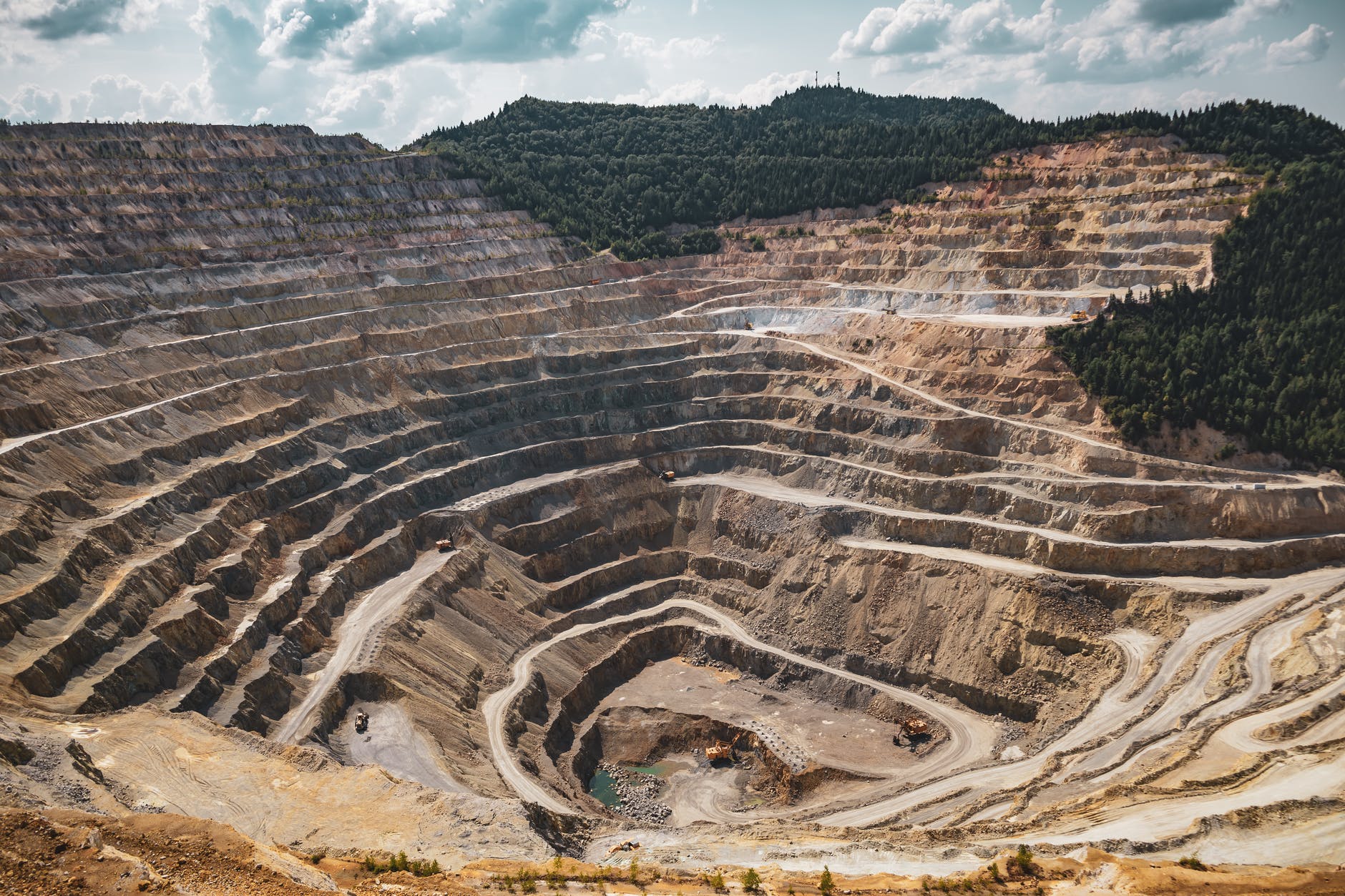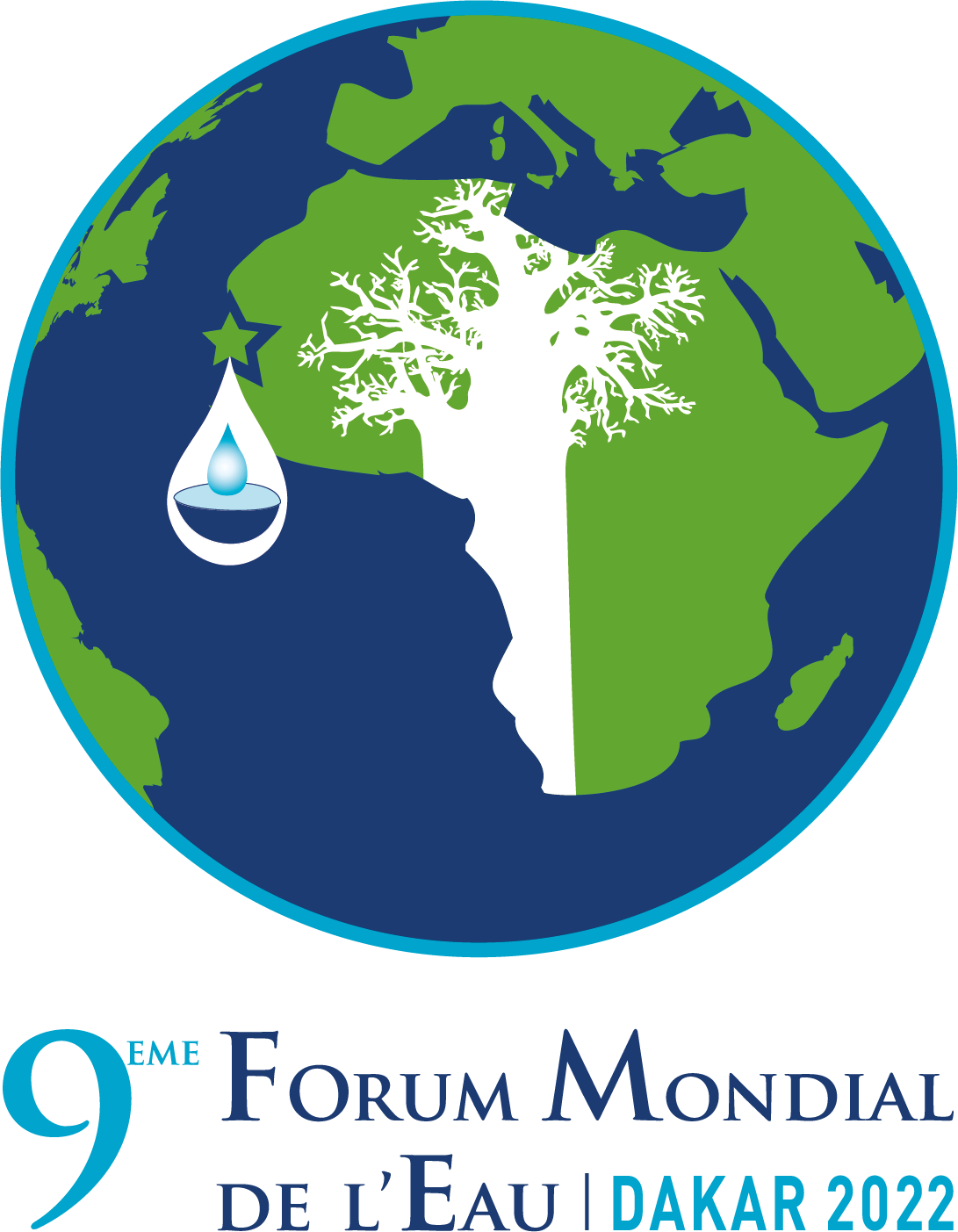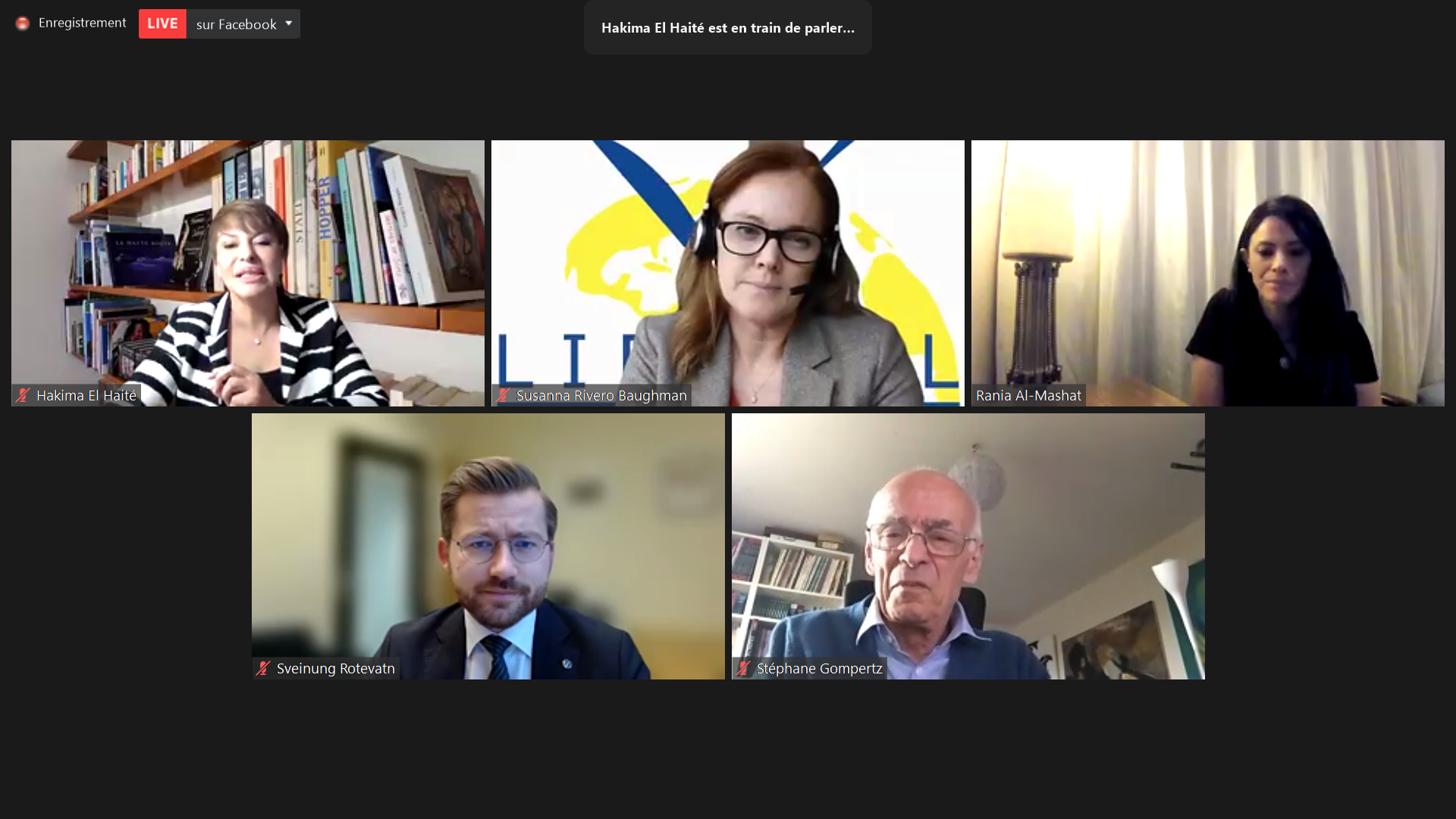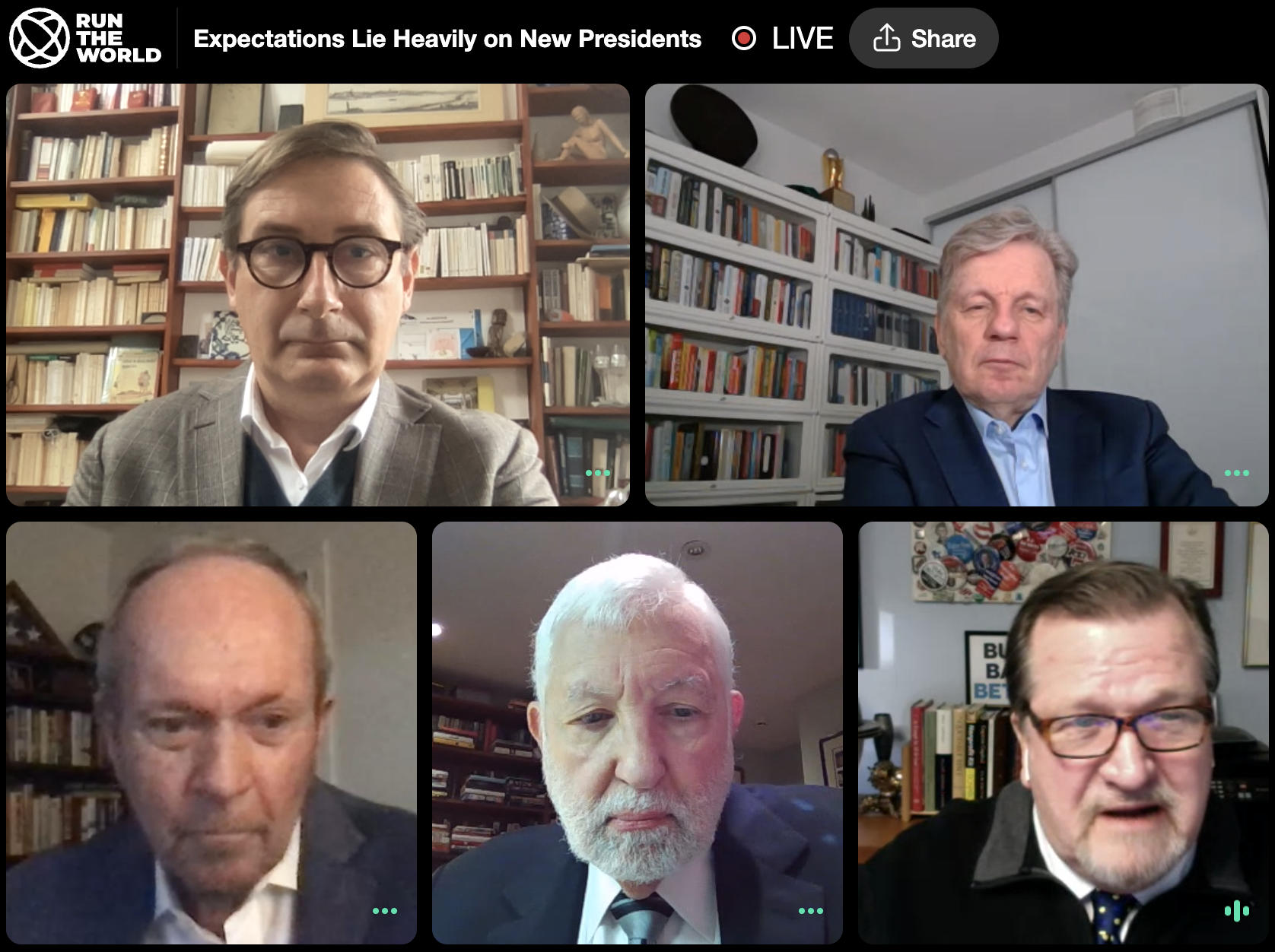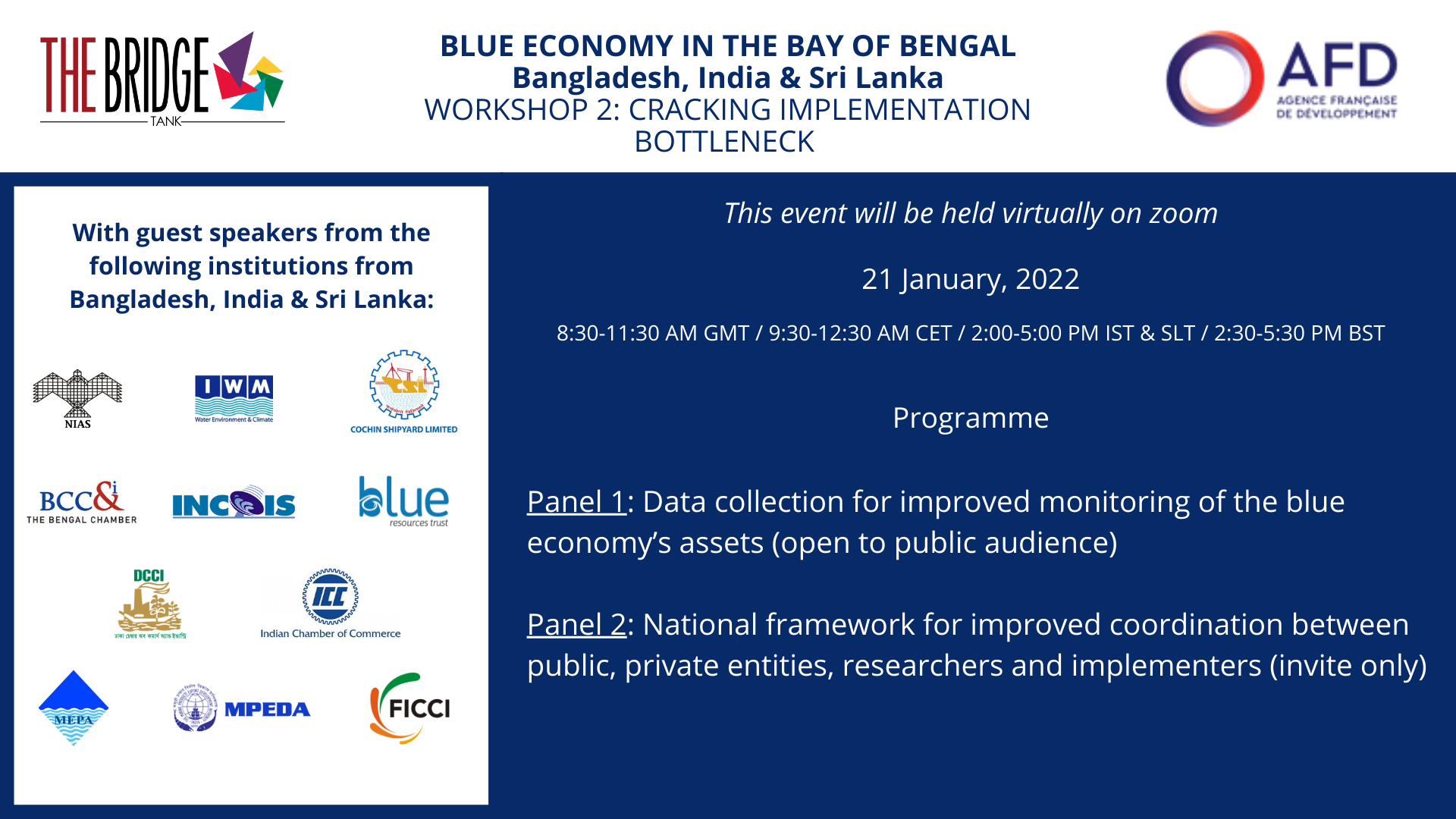Engaging with the EU Commission on strategic autonomy
On 10 May 2022, The Bridge Tank joined a study trip to Brussels that met with European Commissioner Thierry Breton among others. The study trip was organised by the Prospective and Innovation Fondation (PIF) and its chairman Jean-Pierre Raffarin, former Prime Minister of France. The Bridge Tank was represented by Joël Ruet and Philippe Coste, respectively chairman and board member of the organisation.
This study trip on the subject of European sovereignty and autonomy in the face of global pressures and tensions consisted of five interviews with high-ranking EU officials and researchers. The study trip’s delegation met with Laurence Graff, Head of Unit at the European Commission’s Directorate-General for Climate Action (DG CLIMA), with two representatives of the Belgian think tank EGMONT – Royal Institute for International Relations, with Ambassador Philippe Léglise-Costa, Permanent Representative of France to the EU, with Denis Redonnet, Deputy Director-General of the Directorate-General for Trade at the European Commission, and finally with Thierry Breton, European Commissioner for the Internal Market.
The Bridge Tank is pleased to publish the report of this day in Brussels (a more detailed report is available in French).
Commissioner Thierry Breton – The balance of power and geopolitics of the internal market: towards stronger regulations and value chains
Recent crises have revealed weaknesses in Europe’s balance of power with China and the United States. According to Thierry Breton, de-globalisation is impossible today and certain dependencies are bound to persist (e.g. rare earths and semi-conductors). Rather than establishing European ‘sovereignty’, we need to establish a balance of power based on the size of the European continent to ensure relative autonomy and the ability to choose and defend ourselves.
The EU will rigorously enforce its rules and interests against the GAFAs and multi-national technology companies, without any possibility of extraterritoriality, with the Digital Market Act and the Digital Service Act setting out the rules for access to the European market.
More generally, the Commission has in recent years assessed the weaknesses of value chains in each critical sector (e.g. batteries, semi-conductors, lithium, rare earths). It has now become impossible to reason on a country-by-country basis within the EU, and ecosystems and regulatory approaches need to be developed at continental level. For lithium, for example, refining capacity must be developed, as the continent has sufficient lithium resources.
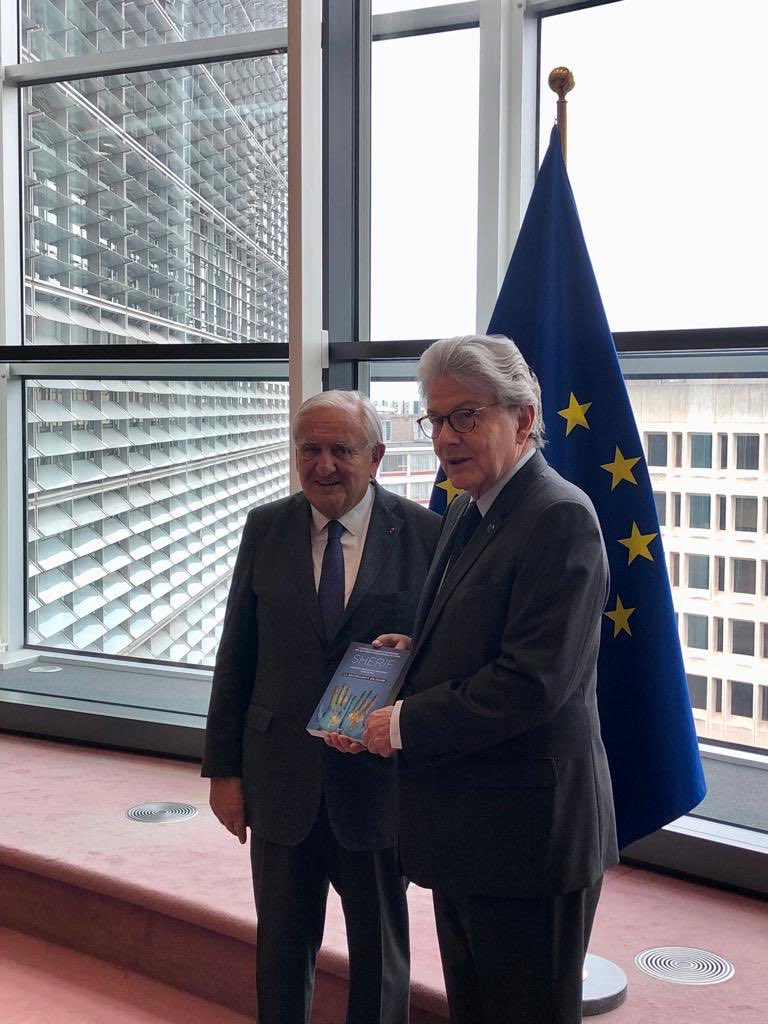
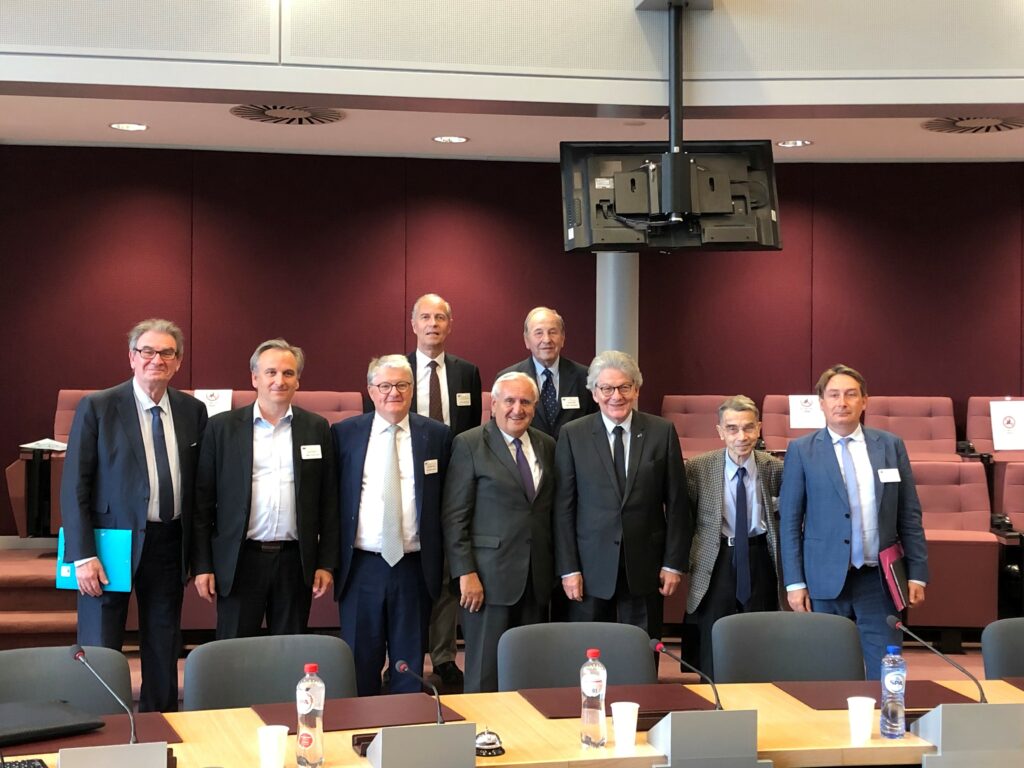
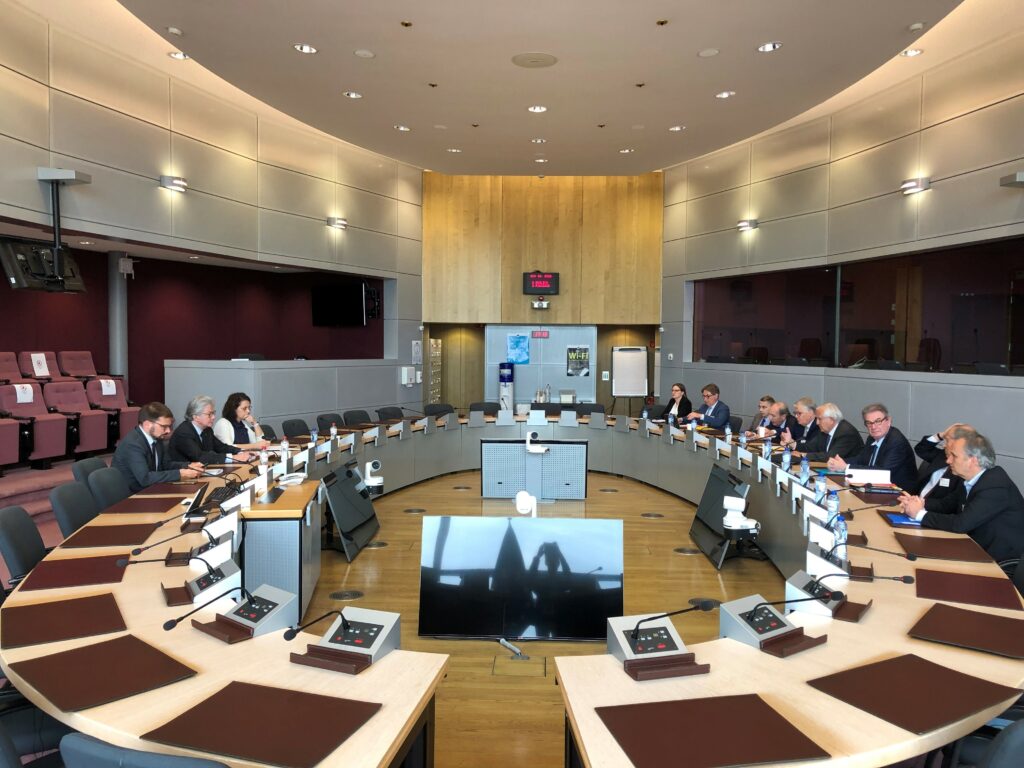
DG CLIMA, Laurence Graff – European climate policy and ambitions: carbon neutrality and energy sovereignty
According to Laurence Graff, Head of Unit at the Directorate-General for Climate Action (DG CLIMA), European climate policy is now of both national and international interest. It was in 2008, during the French Presidency, that the first climate-energy package was adopted. This paved the way for European leadership on environmental issues, which has produced results both in the Member States and internationally. All this was made possible by a differentiated approach and concrete solidarity through various European funds. The European Commission (EC) pays close attention to support mechanisms for climate vulnerability. This was illustrated in 2022 by the creation of a Social Fund for Climate. But the climate issue is also a strategic one, encompassing issues of innovation and international competitiveness.
According to Frans Timmermans, EC VP, the Green Pact represents a new growth strategy, with issues of support and management of economic transition for certain sectors, by strengthening the industries of the future and supporting those in difficulty. The aim is for Europe to become the first carbon-neutral continent, a vision that is more relevant than ever given the current need for energy sovereignty. This concern is also at the heart of the EC’s RePowerEU plan, revealed on 18 May 2022.
EGMONT – The Royal Institute for International Relations: European global power and the balance of power
After the financial and migration crises of the past 20 years, the European Union seemed to have emerged weakened and with a sense of unfinished business. The crises caused by COVID-19 and the war in Ukraine have enabled strong and irreversible progress to be achieved. Although there are difficulties in developing a common diplomatic position, particularly with the risk of a rift in the position of the 27 on the sanctions imposed on Russia, the French Presidency’s proposals aimed at making the Union a global power are coming to fruition. This is made possible in particular by the changing position of Germany, whose current government is proving to be more European than its predecessors, open to variable-geometry advances towards closer cooperation. Egmont is seeing positive signs in Franco-German relations.
During the exchanges between the various participants in this meeting, the question of the balance of power between the EU and Beijing once again found itself at the heart of discussions. Although China has agreed to grant European groups considerable financial margins, a change of course on the part of the Chinese authorities could seriously weaken these companies. The European project must necessarily include a strong position in relation to powerful countries and encourage a union of democracies. This position is reflected in the EU’s continental balance of power vis-à-vis China, particularly in terms of trade relations, where the Union has already indicated its intention to rebalance the balance of power. According to Egmont, European economic power is now beginning to assert itself primarily through the normative power of the European market.
Ambassador Léglise-Costa – European dynamics in response to present and future crises
The exchange session with Ambassador Philippe Léglise-Costa, Permanent Representative of France to the EU, addressed the current dynamics in the common strategy of the European Union.
According to Ambassador Léglise-Costa, the evolution of the German position is particularly notable, a finding similar to that of the Egmont Institute. Faced with the various crises that have hit the continent in recent years, Germany has taken strong decisions characterized by greater openness to common concerns. This contrasts with a more German-centric approach in the past. Beyond the conceptual, the Franco-German tandem has come out strengthened. Germany’s support for the French presidency made it possible to vote on the text on the reciprocity mechanism in public procurement. As the text on subsidies to state-owned enterprises is also advancing, it will contribute to rebalancing the balance of power with countries like China.
According to Ambassador Léglise-Costa, the European position in terms of defense strategy must now progress and encourage the EU to re-equip itself in order to reduce its dependence on the United States, if only because of the risk of political change in US.
DG TRADE, Denis Redonnet – Open strategic autonomy and economic cold war
The European Union is now emerging from an era of all-out free trade agreements, which made it the jurisdiction with the greatest amount. The approach has now changed, and so have the issues of economic integration, to focus on an approach of “open strategic autonomy”. This approach intends to continue to reap the benefits of openness, while working to rebalance the situation to counterbalance the practices of certain economic partners.
The crises facing the EU today are generating increased demands for precaution and protectionism. These tendencies towards protectionist withdrawal can be seen in the EU’s southern neighbourhood in the implementation of agreements to replace European imports with local products. Other types of difficulties encountered today concern the distortions of global competition linked to Chinese state capitalism, which generates distortions around the cost of capital and the system of state-owned enterprises. In the face of this, it has to be said that the rules of the World Trade Organisation (WTO) do not allow for good governance of these practices. This partly explains the withdrawal of the United States from this system and the illegal tariffs from the WTO’s point of view that the US and China are now imposing on each other. These practices are undermining the dispute settlement system, which was one of the most advanced mechanisms for international governance. Although the 25 member countries of the WTO (including China) have set up an alternative system, the absence of the United States from the WTO reform process renders any EU-led efforts to reform futile.
Russia’s invasion of Ukraine required a rapid response and adaptation on the part of the EU. In economic terms, this is illustrated by the speed with which the first five packages of sanctions were put in place. In terms of exports, 25% of EU and G7 exports to Russia are under sanctions. This strategy is undoubtedly part of a medium- to long-term cold war, and will undermine and degrade Russia’s industrial potential in the medium term. Economic and commercial relations are being used to leverage power. The United States is also sending out signals that it could do the same to China, as it had begun to do to the Chinese telecoms giant Huawei and is now doing to Russia. Such an extension to the whole of China would have gigantic consequences.
Conclusion
As the Prospective and Innovation Foundation noted after the trip, “the international climate continues to deteriorate dangerously, but the Union is responding well, in particular by expressing the idea of sovereignty in all its forms”.
Joël Ruet participates in a webinar on “COP26 and the Brahmaputra: A New Perspective based on the Underwater Domain Awareness (UDA) Framework”
Our President, Joël Ruet participated in the webinar on May 5th, 2022 on the topic “COP26 and the Brahmaputra: A New Perspective Based on the Underwater Domain Awareness (UDA) Framework”. This is the 5th in a series of webinars organized by the Maritime Research Center and M/S NirDhwani Technology Pvt Ltd.
His participation was an opportunity to continue the conversation on the blue economy started with key stakeholders, such as the Maritime Research Center.
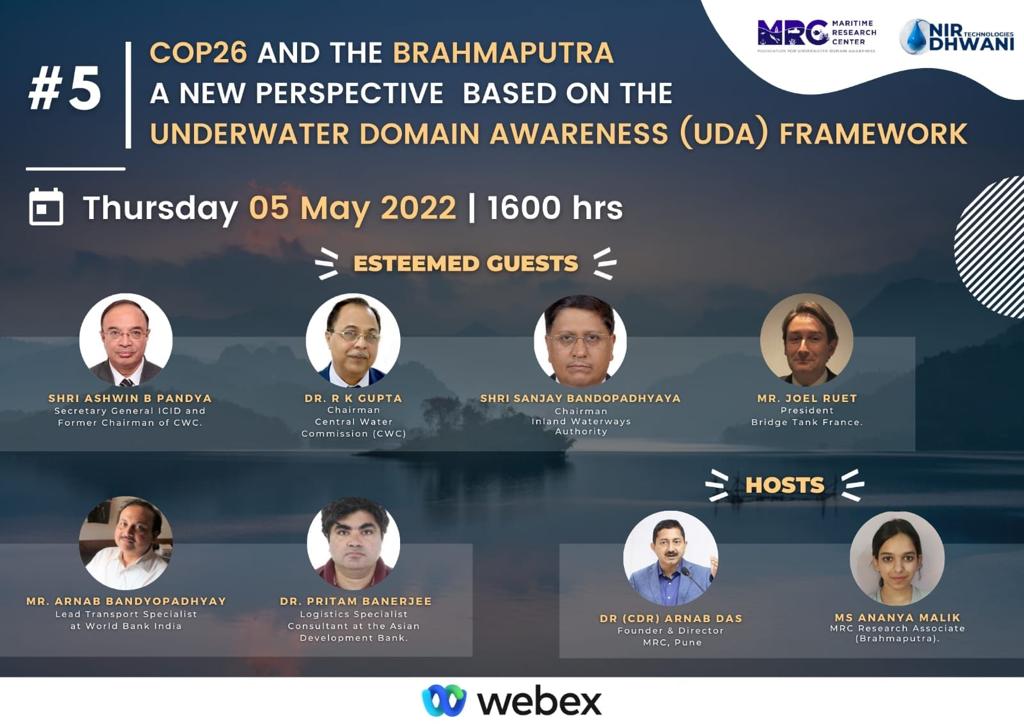
As there are many solutions on « environmental engineering » coming from the global south towards river aspects, in particular from the Indo-African side, Joël Ruet suggested enhancing cross learning in terms of environment and engineering, notably water storage for hydroelectricity, navigation regulation and velocity regulation can have a positive impact on avoiding disasters and protecting biodiversity. At the condition of a step by step learning. The COP26 that dealt about integration of environment to adaptation and adaptation to mitigation towards cobenefits and nature based solutions opened an avenue and Joel Ruet has high hopes for the next COP which will be held in Egypt in November. Thanks to the various exchanges about the Brahmaputra region, he was able to appreciate the vast amount of knowledge that should be shared during COP 27 – “We must learn from the experience of Brahmaputra”.
The Bridge Tank at the BOAO Forum for Asia 2022: Promote Energy Integration and Build Green World
The BOAO 2022 Forum was held from April 20 to 22 in a hybrid mode, aiming to conduct an open dialogue in a post-COVID world and on the prospects of common development in the world of tomorrow.
Since 2018, The Bridge Tank has participated in the annual “Chinese Davos” event. Our President, Joel Ruet spoke at a high-level panel in the presence of Mr. Ali Obaid Al Dhaheri, Ambassador of the United Arab Emirates to China, Mr. Baodong Li, Secretary General, BOAO Forum and former Vice Minister of Foreign Affairs of China, Mr. Mr. Jizhen Liu, Academician of Chinese Academy of Engineering and Director of State Key Laboratory of Alternate Electrical Power System with Renewable Energy Sources, Mr. Hailiang Song, President of China Energy Engineering Group Co, Mr. Jianhua Hu, President of China Merchants Group and Mr. Haiping Xiang, Chief Engineer of China National Energy Administration.
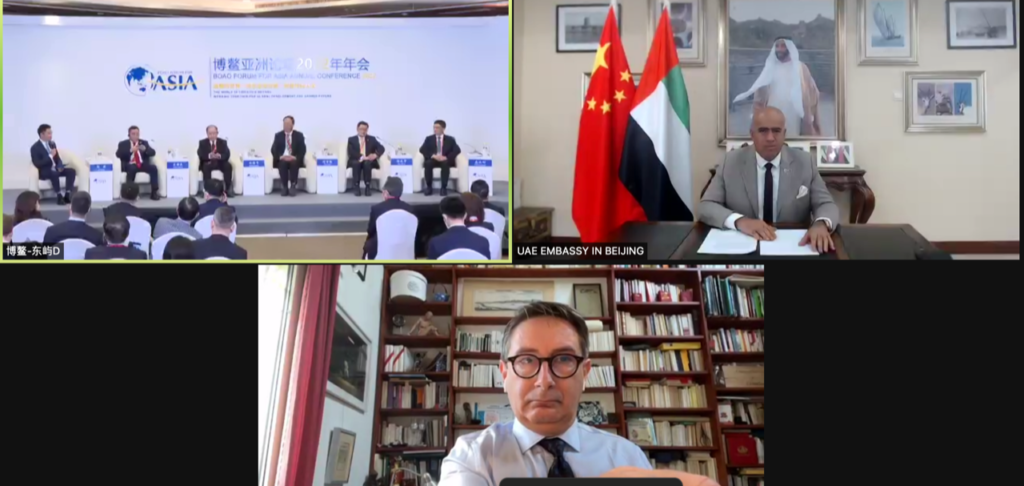
In his speech, Joël Ruet spoke about the global issues related to energy integration and trajectories. He stressed the importance of “deep decarbonation technologies” in accelerating net zero emissions by 2035-2040. Until then, he added that each country or territory will have a role to play to have its own “transition trajectory”, not only adding renewable energies but also integrating them into the networks with a more rational and efficient use.
Joël Ruet addressed the issue of adaptation, which must no longer be looked separately from other issues. He illustrated his remarks through the example of carbon sinks, which have be created from optimized ecosystems everywhere, not only in forests, but also in savannahs or mangroves.
Dr. Ruet also demonstrated that energy trajectories are already low-carbon, which is particularly the case for Africa and most of the G77 countries. It is important that these trajectories are recognized as such and therefore funded by the North and that technology and know-how transfers are funded accordingly.
In response to the question of how to implement global support to energy trajectories of the global south, the President of The Bridge Tank proposed two solutions: first, allow the South to manage itself with more funding to create local champions, keep the gas trade open to them, and ensure that their carbon sinks are recognized as an incentive to develop them; and second, enable their local financial entities to play a larger role by recognizing that “risks” are over rated there in comparison to actually high profitability.
As in the 2021 edition, Joël Ruet was one of the three French speakers, representing the circle of Think Tanks, alongside Jean-Pierre Raffarin and Henry Giscard D’Estaing, who respectively represented the political and economic worlds.
Read here the agenda of the BOAO Forum 2022.
Analytical report: China’s value chain strategy on cobalt – lessons for EU
Strategic materials are ubiquitous in all sectors relevant for the green economy and the energy transition. Regarding cobalt, it owes its current visibility to its increasing use in low carbon technologies, also called green technologies (renewable energy and rechargeable batteries). Cobalt is used as an input in the magnets of wind turbines, and for the production of the cathodes of lithium-ion and nickel metal hydride batteries, which are then incorporated in electric or hybrid vehicles. In the current context of the electrification of mobility, cobalt is therefore regarded as a strategic material. The production of cobalt is however one of the prime examples of the unequal distribution of the earth’s resources, the metal being extremely concentrated in one country: the Democratic Republic of Congo (DRC), who represents 70% of global production, and the DRC’s reserved are controlled substantially by what has now become an unavoidable actor in the cobalt value chain: China.
As a continuation of our work on analysis China’s materials strategy, we have developed a report to analysis how China has imposed itself on the cobalt value chain, both upstream and downstream, and has progressively managed to build itself a comparative, if not absolute, advantage. This report aims to conduct a combined analysis of the strategies that have been implemented both by the Chinese government as well as industrial actors in order to gain this hegemonic position on the value chain. These strategies have allowed for the constitution of a resilient and dominant Chinese ecosystem around the cobalt value chain on the international stage.
Read our report here
The Bridge Tank participates in the 9th World Water Forum – Dakar 2022
On the occasion of the 9th World Water Forum, which was held in Dakar, Senegal from March 21 to 26, 2022, The Bridge Tank co-organized two events in favor of hydrodiplomacy and the preservation of major rivers . Joël Ruet, President of The Bridge Tank visited the site.
The Water Forum is the world’s largest gathering on water, bringing together participants from all levels and walks of life, including politics, multilateral institutions, academia, civil society and the private sector. The World Water Forum provides a unique platform where the international water community and key decision-makers can collaborate and make long-term progress on global water challenges.
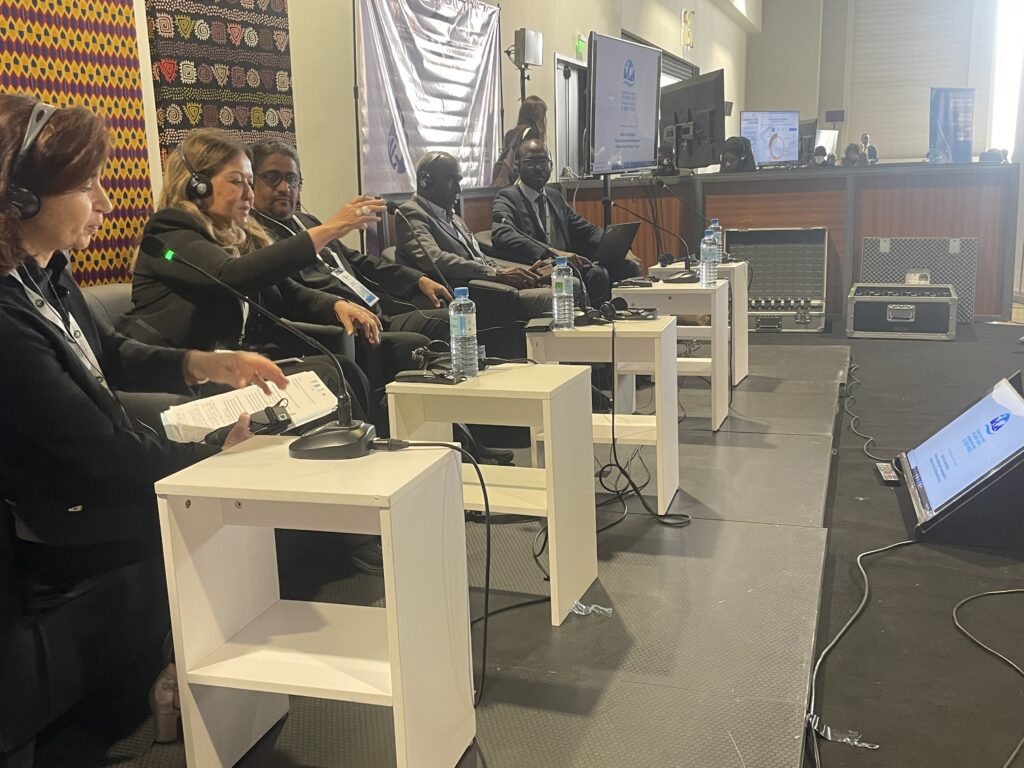
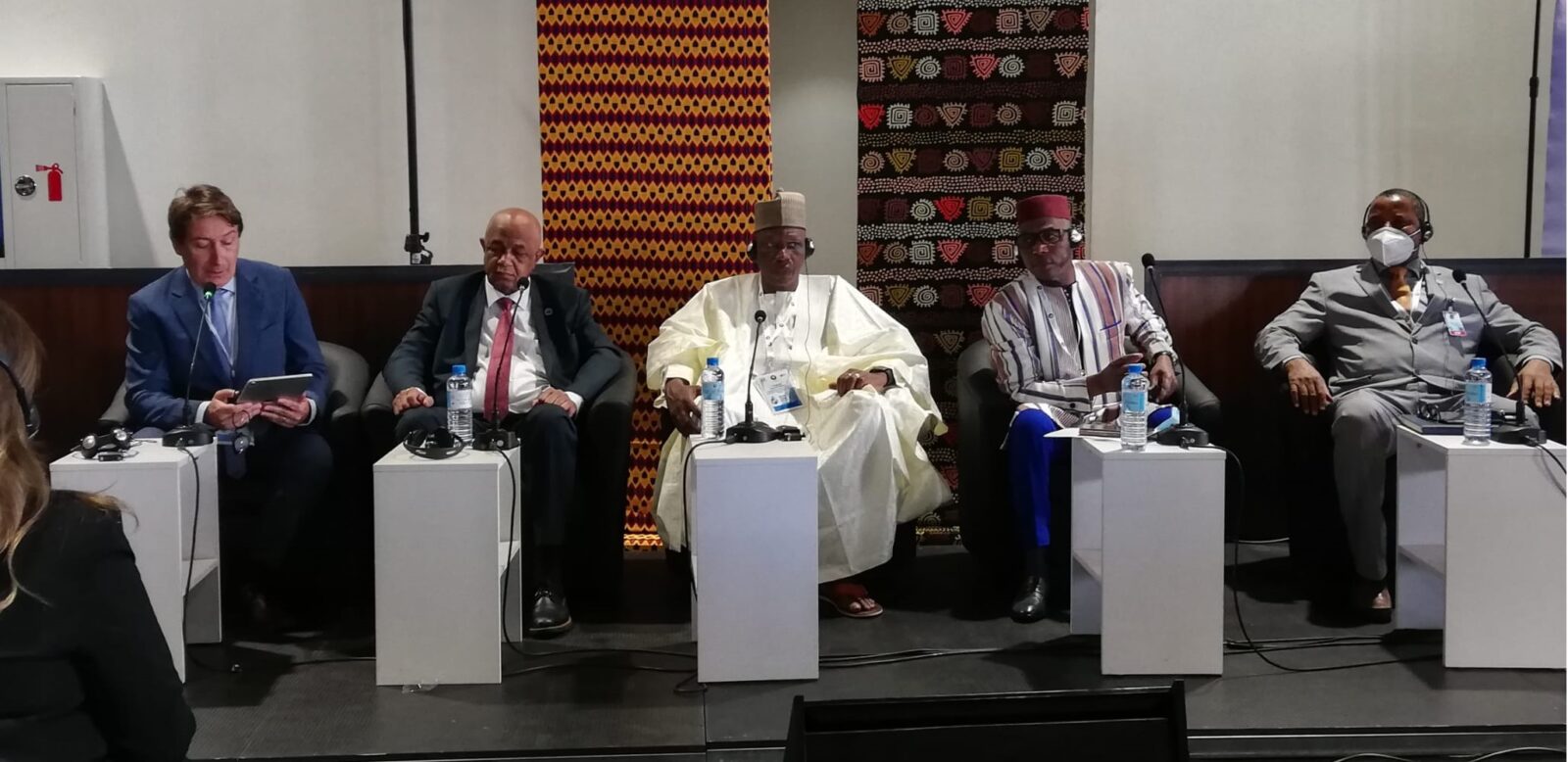

Active and present during the Forum, a first SPECIAL SESSION was co-constructed with the OMVS (Organization for the development of the Senegal River), the OMVG (Organization for the development of the Gambia River) and the IAGF (Initiatives for the Future of the Great Rivers) on the theme “Massif du Fouta Djallon: visions and actions for the safeguard of the “water tower of West Africa””. The main objective of the special session was to establish a dynamic of exchange and the germ of a future joint working group bringing together the diversity of actors regulating the course of the major rivers flowing from the Fouta Djallon Massif, organizations in charge of sustainable development and the implementation of climate resilience of the populations downstream of the Massif, and having at heart to anchor the sustainability of their initiatives in the protection and the social and environmental climate resilience of the “water tower of West Africa”. Based on the sharing of experience around practices of development, enhancement, preservation, this session aims to identify the best regional practices, concerted action avenues from existing programs or scheduled activities. Beyond the sharing of experience, the session aimed to identify gaps and propose shared orientations for a better knowledge and coordinated action of the actors. In the preparation of this session and the choice of the activities put forward, several criteria were targeted:
- effectiveness on the preservation and reconstitution of natural resources or the implementation of sustainable development;
- potential for synergies and scaling up;
- financeability accelerated by expected developments in climate finance.
This special session made it possible to discuss the treatment of a shared territory: an exchange of experience between the large basin agencies and development organizations of the major rivers from this region in a logic, the actors of traditional development, the agencies and actors specializing in the preservation of resources integrated into development, exchange platforms on traditional measures adapted to the preservation of source heads, targeted reforestation programs, or even the mobilization of measurement and modeling systems.
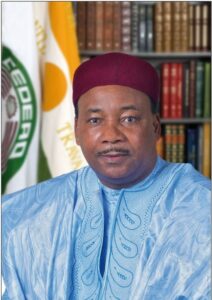
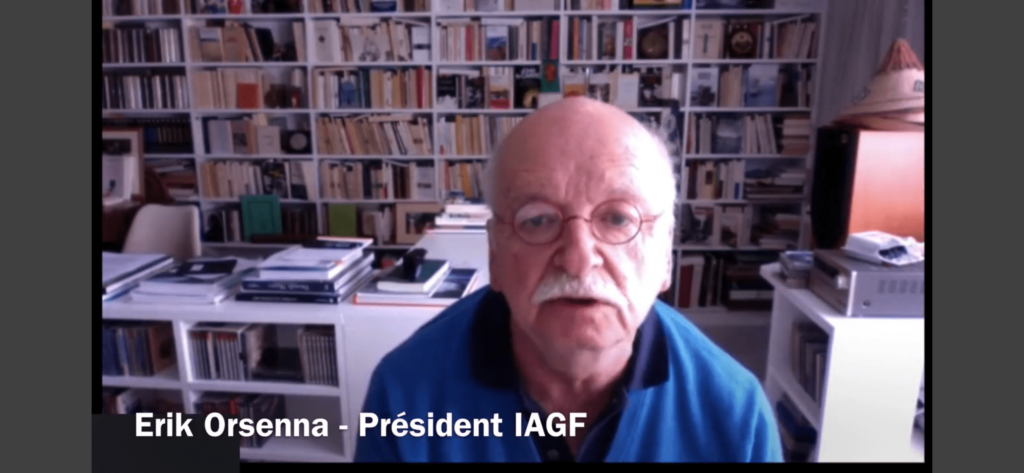
Among our guests of honor were present HE ISSOUFOU Mahamadou, former President of Niger, President of the Issoufou Mahamadou Foundation and Mr. Erik ORSENNA, French Academy, President, Initiatives for the Future of the Great Rivers and testified to the global lessons learned useful for the Fouta Djallon Massif during inaugural speeches.
Sékou SANGARE, Commissioner, Economic Community of West African States, Mr. Lansana FOFANA, High Commissioner, Organization for the Development of the Gambia River, Mr. Abdallah BOUREIMA, Executive Secretary, Niger Basin Authority , Mr. Hamed Diane SEMEGA, High Commissioner, OMVS, Mrs. Houria Tazi SADEQ, President, Moroccan Water Coalition, Mr. Komlan SANGBANA, Legal Advisor to the Secretariat of the United Nations Water Convention, Mr. Fawzi BEDREDINE, Coordinator, OMVS, Mr. Mamadou DIALLO, International Advisor, International Union for Conservation of Nature also spoke during this event.
Two panels were organized: Panel 1 – Fouta Djallon issues and perspectives and Panel 2 – Scientific solutions, tools and actors for Fouta Djallon. To find out more, please find the program for the special session of March 23, 2022 here.
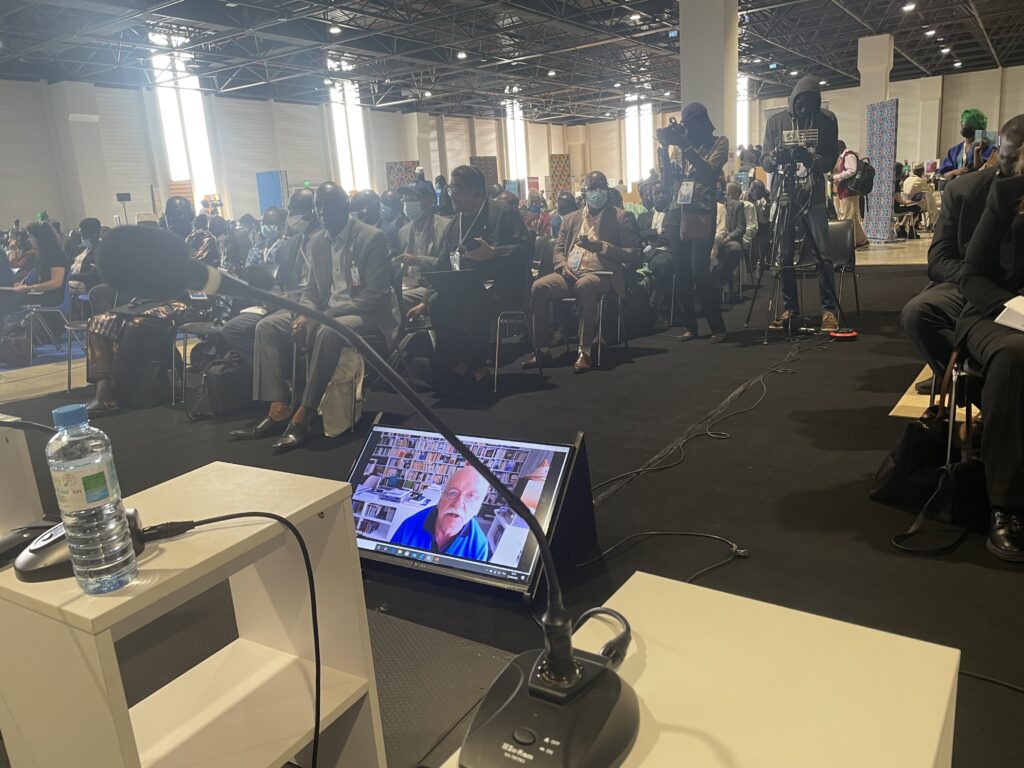
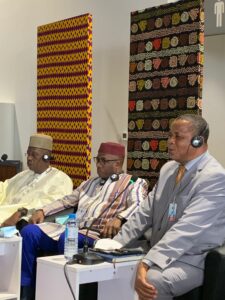
A SIDE EVENT was then co-organized with the OMVS and the IAGF on the theme “Towards the “peace of the basins”: optimistic hydrodiplomacy and climate resilience”. Hydrodiplomacy has been an emerging concept for several years, largely stemming from the observation of rivalries over water and even the risks of “water wars”. This session aimed to:
- conceptually highlight the potential for building peace through hydrodiplomacy, noting on the contrary the opportunity for “peace of the basins”;
- to highlight the best practices of technical, legal, organizational, economic and environmental tools at the base of a “concrete” hydrodiplomacy;
- bring out consensus on the importance of the right level of integration of economic, technical, political actors… even representatives of the populations at cross-border level.
This session aimed at the following outputs:
- List of good practices and institutional and technical innovations that can serve as a basis for a future ‘catalogue of good practices in hydrodiplomacy’;
- Identification of the difficulties, opportunities, risks and associated timeframes, the beginnings of a reflection on the financability of these actions by environmental finance;
- Debate on the desirability of a future “global academy of hydrodiplomacy and peace in the basins”.
By dint of documenting the many cases in the world of risking river waters and the life of rivers resulting from the rivalry of uses and leading to the risk of conflicts over water or feeding conflicts arising from water, the existing cases by the world of successful management, partial or global, of these disputes, are insufficiently documented or little disseminated. A prospective synthesis work can be initiated by this ecosystem and this session aims to legitimize existing self-referrals in this area by bringing together key players with a proactive, upstream vision of the integration of basins at the service of sustainable development, the regeneration of resources and peace. In anticipation of the implementation of Article 6 of the Paris Agreement, a reflection on the contribution of large rivers to mitigation and adaptation must be carried out. This special session focused on the opportunities of the presence at the World Water Forum of various representatives of the major institutions and actors concerned, towards a possible ‘Dakar Declaration of Basin Peace’.
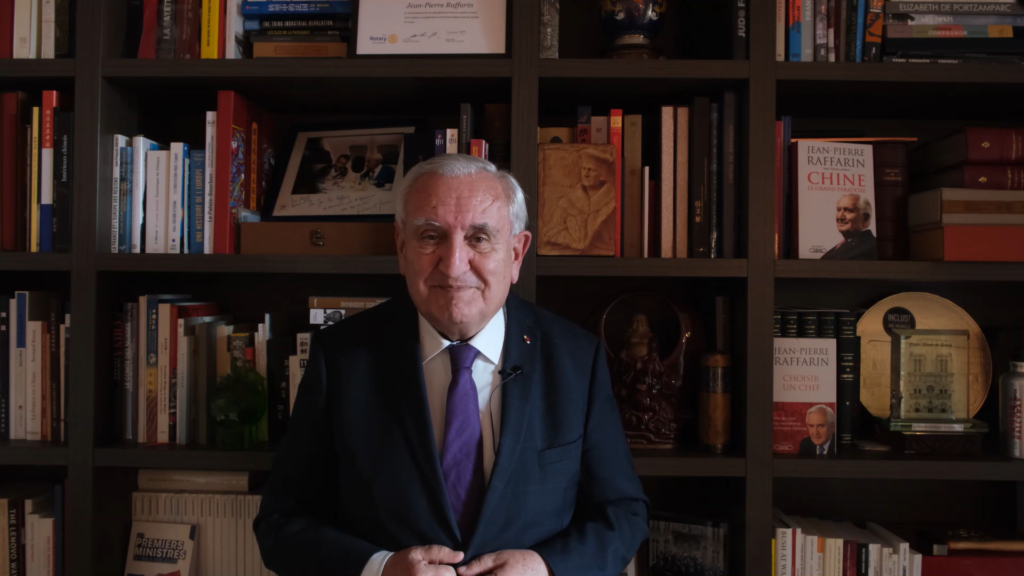
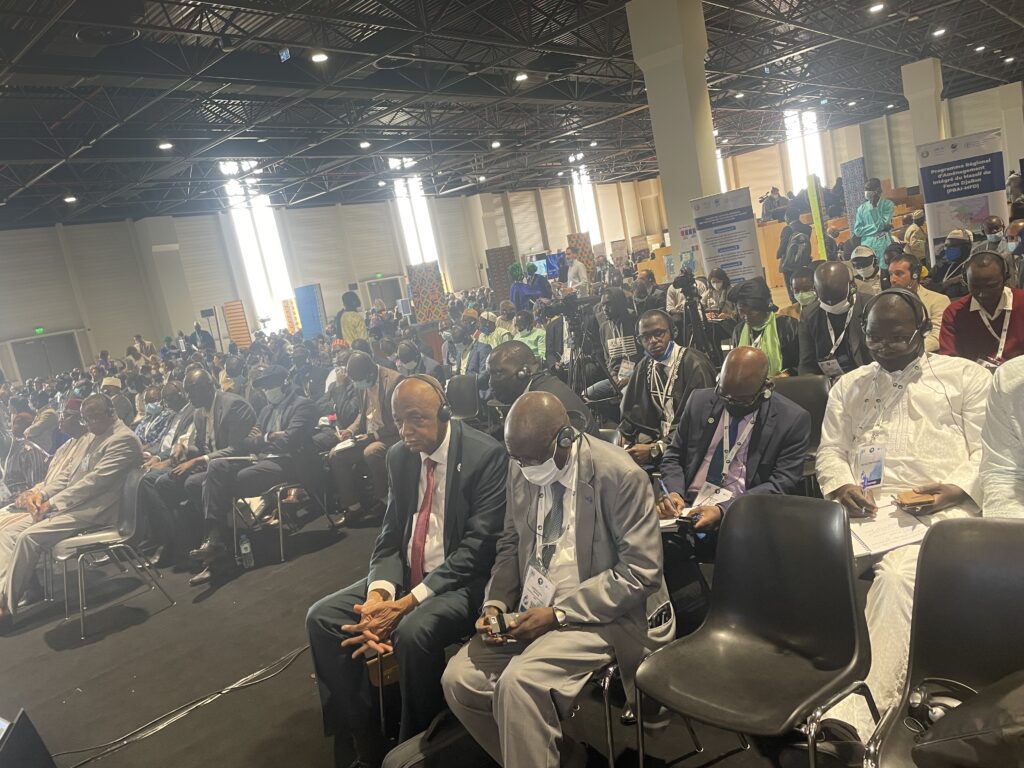
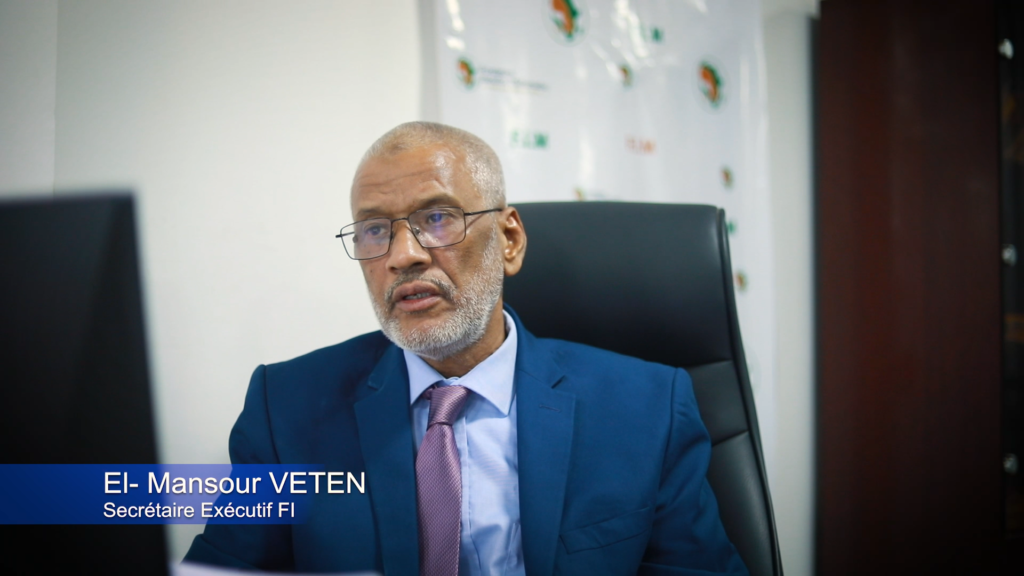
This side event was divided into two panels: Panel 1 – Messages of Support for “Peace in the Basins”, in the presence of HE ISSOUFOU Mahamadou, former President of Niger, President of the Issoufou Mahamadou Foundation, Mr. Jean-Pierre RAFFARIN, former Prime Minister, France, President of Leaders for Peace, Ms. Hakima EL HAITE, President of Liberal International, former Deputy Minister of the Environment, Kingdom of Morocco, former United Nations Climate Champion, Mr. Erik ORSENNA , French Academy, President, Initiatives for the Future of Great Rivers and Mr. Hamed Diane SEMEGA, High Commissioner, Organization for the Development of the Senegal River; Panel 2 – Issues and tools of hydrodiplomacy, in the presence of major basin organizations. To find out more about this event, please find its program here.
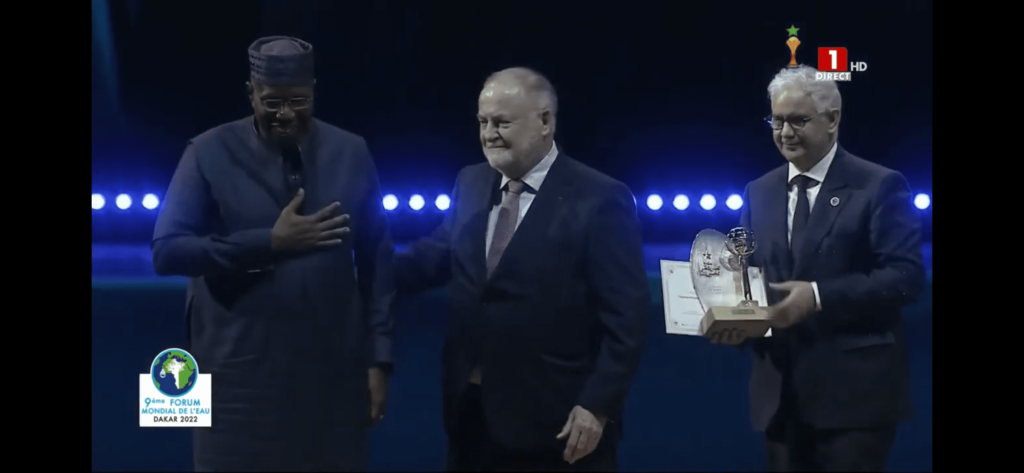
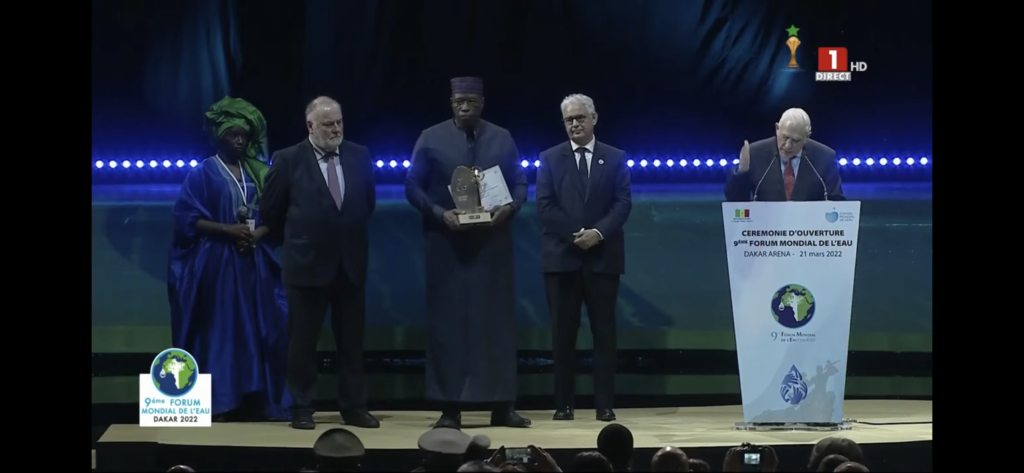
On the sidelines of the workshops and conferences, our board member, Mr. Hamed Diane Semega, High Commissioner of the OMVS was awarded, on behalf of the organization, the Hassan II prize for water. According to the jury, the West African organization based in Dakar, which brings together Mali, Mauritania, Senegal and Guinea, was distinguished for its action in favor of the “achievement of water and food security” of the greater basin. cross-border, but also for its action for “peace, prosperity and territorial development” of its member countries. Hydrodevelopment and hydrodiplomacy have indeed been at the heart of the organization’s model.
Side event “From COP 26 Glasgow Commitments to COP 27 Egypt Opportunities: The MENA perspective Confirmation”: participation of our Board Members
On the occasion of the first edition of the UNFCCC MENA Climate Week, from 28th – 31st of March, hosted by the Government of United Arab Emirates, Liberal International, of which The Bridge Tank is a member has organized a virtual side event on 29th of March named: From COP 26 commitments to COP 27 opportunities: The MENA perspective.
The purpose of this event is to tackle the challenges and opportunities stemming from the shared commitment that was agreed at COP 26 in Glasgow, while looking ahead at COP 27 Egypt as an opportunity to increase ambitions. Moderated by the President of the Liberal International, UN High-level climate champion and our Board Member, Hakima El Haite asked a series of questions to each of the speakers.
Among them, our Board Member, Stéphane Gompertz was present in his capacity as former French Ambassador in African countries and Special Envoy for COP 21. He was first asked to give his perspective for the COP 27.
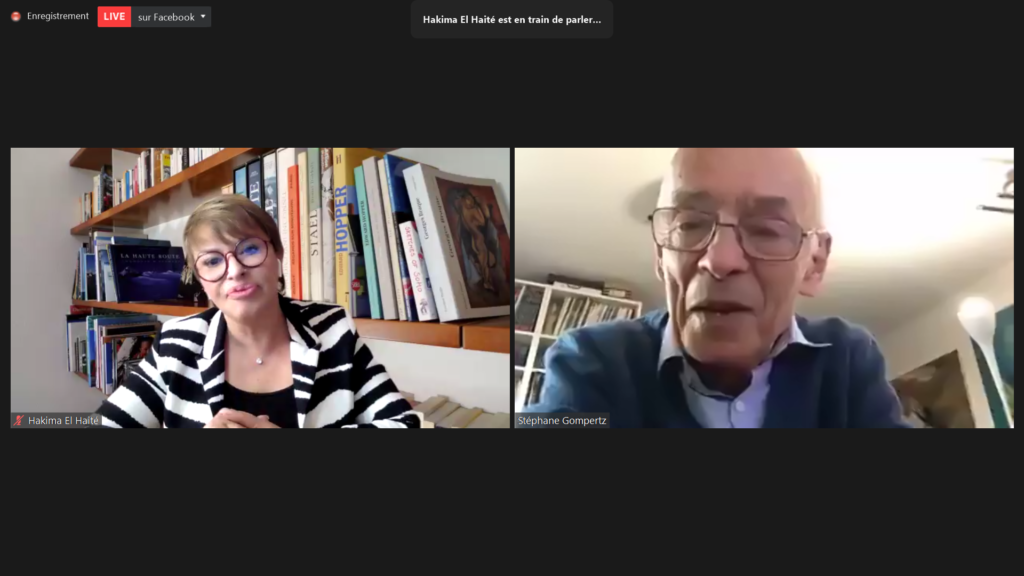
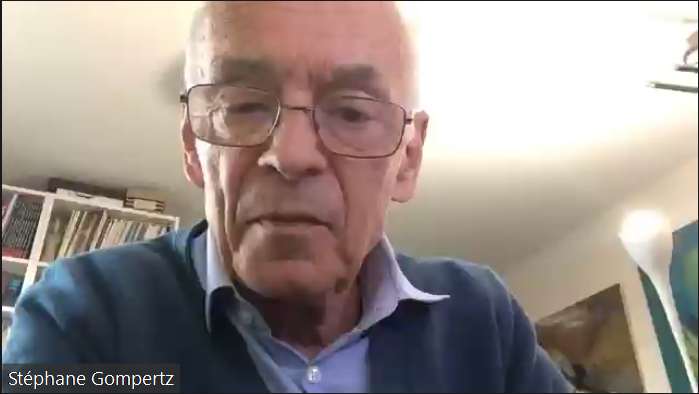
His vision for the next Conference of the Parties reflects the difficulties of raising the climate ambition and maintaining efforts in a context of tensions (COVID-19, War between Ukraine and Russia and War in Yemen). The different crises and current wars shift the priorities of the states and public spending. Money is spent more on wars than for climate action. The political ambitions aren’t now and won’t be as high as it was during the COP 21 and the COP 22. The COP 27, will take place in Sharm El-Sheikh in Egypt, will have the difficult task of pushing the Parties’ effort to:
- Help to pursuit government and public opinion to have a look in the future.
- Push for solutions.
- Continue to promote good practices in the field of adaptation.
Stéphane Gompertz then explained what should be done to keep the 1.5°C? He said that we have to look ahead. States act in the short and long term. Energy is a good example. In a short term basis, countries will use more fossil fuel. In a long term basis, we will see the positive effect on energy policy. For instance, France undertakes nuclear, without it, it won’t be enough effort to commit climate targets. However, the question of nuclear power is again debated in France in this electoral and the War between Ukraine and Russia context. But it is important to measure the risks over time: living with temperatures above 2-3°C or living with an energy mode low in CO2 emissions.
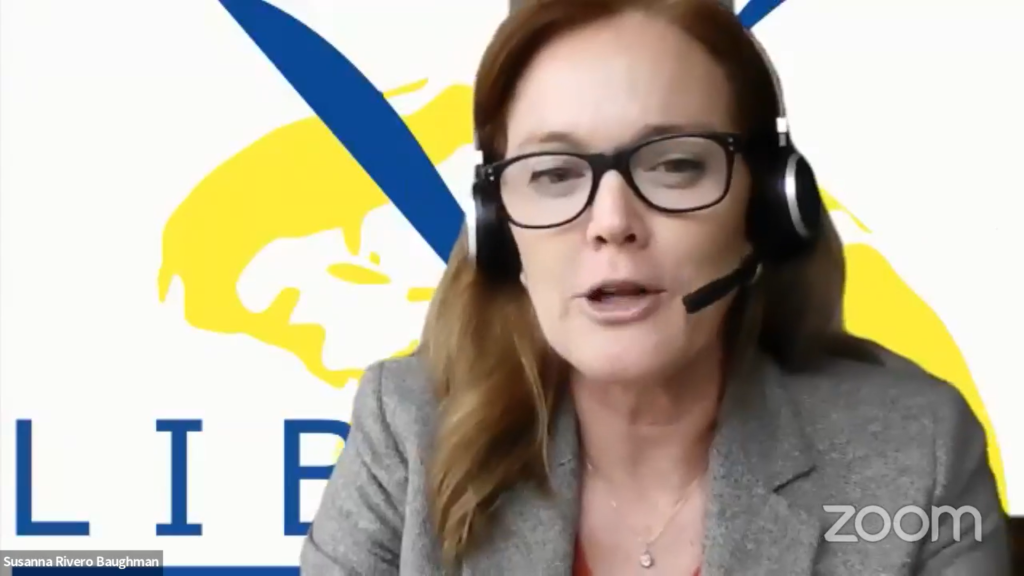
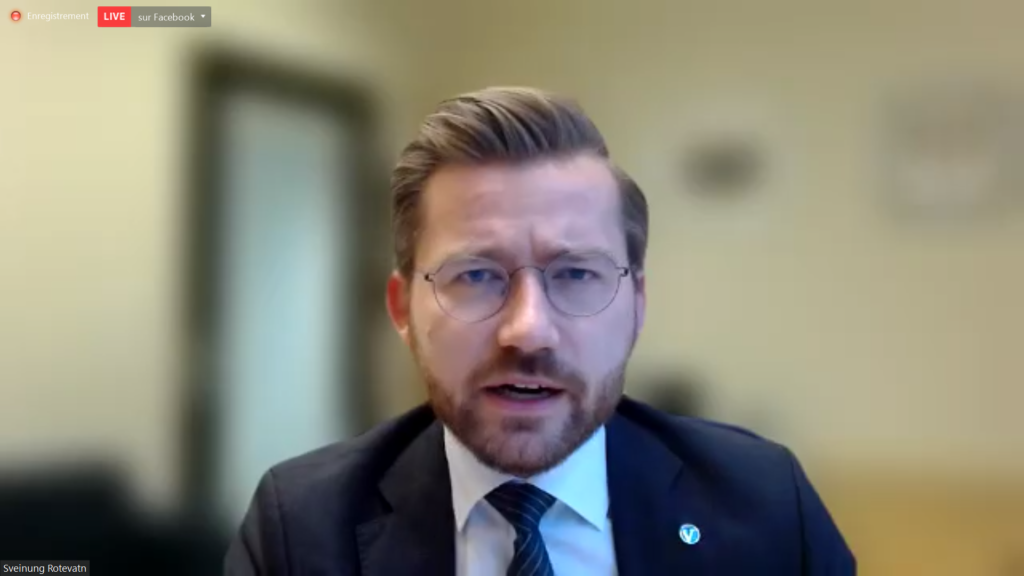
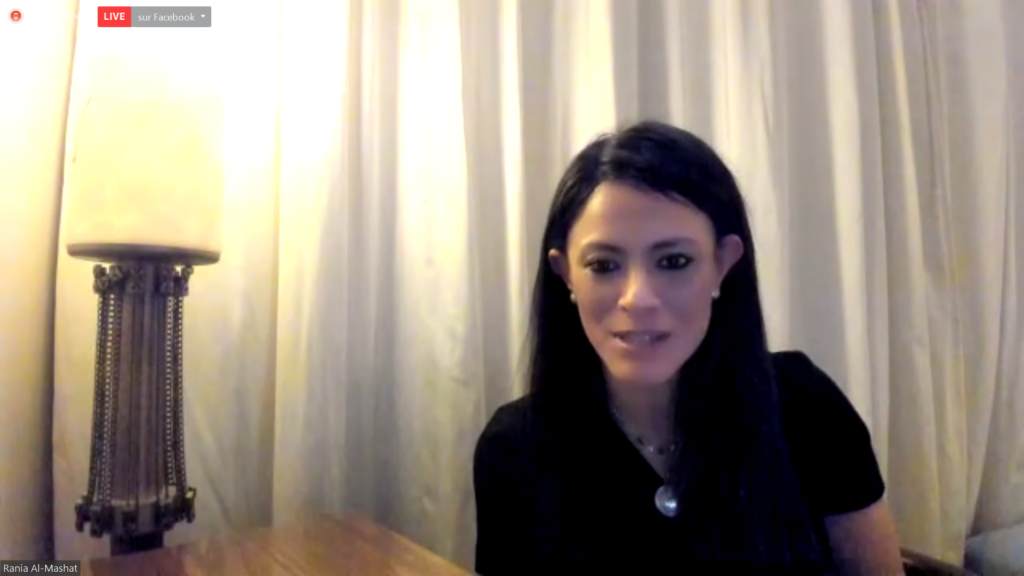
Mrs. Susana Rivero Baughman, who is the Foreign affairs and Cooperation Adviser at the Secretary of Climate Action, Government of Catalonia gave a short presentation of International Liberal’s action to Climate Justice Committee, which has recently adopted a policy paper “Liberal Perspectives on Climate Justice”. Mrs Baughman expressed the lack of actions between climate change and human rights and this is what the International Liberal is willing to do by developing a Policy Lab and strengthening their presence in COPs and international forums. She finally highlighted that the COP 27 will offer plenty of opportunities for Africa.
Mr. Sveinung Rotevatn, who is Former Minister of Climate and Environment in Norway, developed an evaluation form the COP26’s achievements. For Mr. Rotevatn the COP 26 was a success for 3 reasons:
- Finish the Rule Book of the Paris Agreement, which constitutes a common framework among Parties.
- Increase ambition. Bigger emitting countries increase their ambitions, most countries raise their ambitions in NCDs, the USA are back in the Paris Agreement and we keep the 1.5°C objective alive.
- Sufficient commitment to increase finance: developing world can have confidence from the financing mechanisms. Industrial countries promise to double their climate finance. Pledges were made and it was well received from most developing countries.
He then explained that after 2 years of global pandemic, we have not lost the long term aspect of the climate crises. He then emphasized that Norway is one of the leading financiers and that the country will double its efforts in climate finance, notably for the preservation of tropical rainforest and mitigation and adaptation. He finally said that pollution tax is a necessary tool for a fair transition and support climate transition at country level, whereas at the global level, climate finance is a necessary tool.
Mrs Rania Al-Mashat, who is the Minister for International Cooperation of Egypt explained what will be the objectives and opportunities for the COP 27 in three messages:
- The COP 27 is going to be impartial, even though this COP is organized in Africa.
- Adaptation & resilience will be central and was one of the main outcomes from COP26.
- Commitment to actions.
Mrs. Al-Mashat emphasized the outcomes from Glasgow, asking open questions that will need to be answered at COP 27.The private sector’s role need to be increased: “We are going from billions to trillions”. It is also important to think about how can we operationalize what it have been pledge. How to derisk green investments? How can we create opportunities for the blended finance? There is not enough operationalize projects financed. How can we leverage from successful countries and to replicate them?
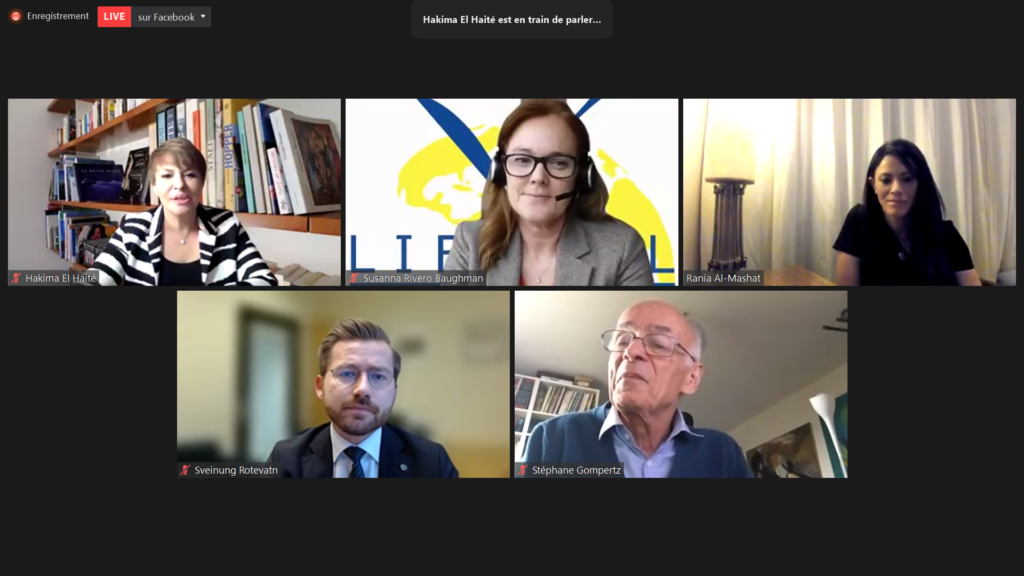
The Bridge Tank and French Development Agency launch their final workshop on Blue Economy
On March 16, 2022, The Bridge Tank held the final workshop in a series of three with the mandate of the French Development Agency on blue economy in the Bay of Bengal (Bangladesh, India, Sri Lanka). This workshop aimed at the identification of possible bilateral and regional cooperation with the contribution of the French know-how in the maritime field. It also aimed at open up the conversation to design solutions which the French side could contribute in response to the challenges identified during the first two workshops in collaboration with key players in the Bay of Bengal region.
The discussion was based on 6 main takeaways in terms of needs and gaps identified from the first two workshops:
- The role of blue economy in the region
- The role of data
- Improving coordination
- Strengthening private and public cooperation
- Promoting institutional capacity building in front of data collection and coordination
- Developing pilot projects
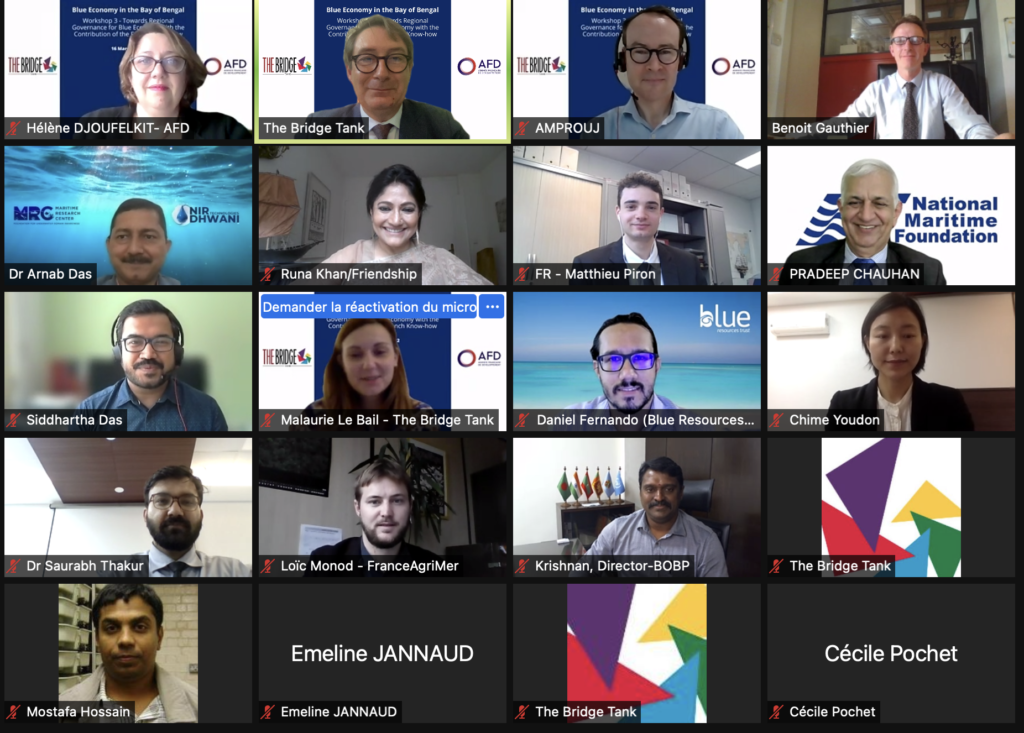
This workshop was comprised of three closed-door panels:
Panel 1: Institutional cooperation and ambitions at regional level with the support of French know-how
Moderator: Dr. Joël Ruet, President, The Bridge Tank
- Dr. (Mrs) Hélène Djoufelkit, Research Director of the AFD
- Mrs. Runa Khan, Founder & Executive Director of the Friendship NGO
- Mr. Daniel Fernando, Chairperson, Blue Resources Trust, Sri Lanka
- Dr. Arnab Das, Executive Director & Founder, Maritime Research Centre, India
- Mr. Matthieu Piron, Policy officer for international affairs, Directorate for Sea Fisheries and Aquaculture, Ministry for the Sea
- Mr. Benoît Gauthier, Head of the Regional Economic Service, Embassy of France in India
- Vice Admiral Pradeep Chauhan, Director-General, National Maritime Foundation, India
- Dr. P. Krishnan, Director, Bay of Bengal Inter-Governmental Organization (BOBP-IGO), regional
Panel 2: Developing nationally and regionally viable projects to enhance the value chains of blue economy
Moderator: Dr. Joël Ruet, President, The Bridge Tank
- Mr. Manish Singhal, Deputy Secretary General, Federation of Indian Chambers of Commerce & Industry (FICCI), India
- Mr. Martin Lemenager, Senior Program Manager for Infrastructure, AFD Office in Indonesia
- Mr. Loïc Monod, Bioeconomy research officer, France AgriMer
- Mr. Nicolas Vuillaume, Indian Ocean Representative, Collecte Localisation Satellites (CLS)
- Dr. Mostafa A. R. Hossain, Professor, Aquatic Biodiversity & Climate Change, Department of Fish. Biology & Genetics, Bangladesh Agricultural University, consultant with AFD Bangladesh
- Dr. Arnab Das, Executive Director & Founder, Maritime Research Centre, India
- Mr. Aruna Maheepala, Senior Research Officer of National Aquatic Resources Research and Development Agency of Sri Lanka
- Mr. Shri Aditya Dash, Vice Chairman, Marine Products Export Development Authority (MPEDA), India
- Mr. Bruno Bosle, Country director of the AFD Office in India
- Mr. Reda Souirgi, AFD Sri Lanka, represented by Mrs. Panchali Ellepola, Project Officer
- Mr. Benoît Chassatte, Country director of the AFD Office in Bangladesh
Panel 3: Enhancing shared resources through a regional network & general conclusion
Moderator: Dr. Joël Ruet, President, The Bridge Tank
- Mrs. Afifat Khanam Ritika, Research Officer Bangladesh Institute of Maritime Research and Development
- Mr. Pattabhi Rama Rao, Group Director, Ocean Observations, Modelling and Data Assimilation Group, Indian National Center for Ocean Information Services (INCOIS)
- Dr. (Mrs) Hélène Djoufelkit, Research Director of the AFD
- Dr. Joël Ruet, President, The Bridge Tank
- Mr. Jacky Amprou, Regional Director for South-Asia, AFD
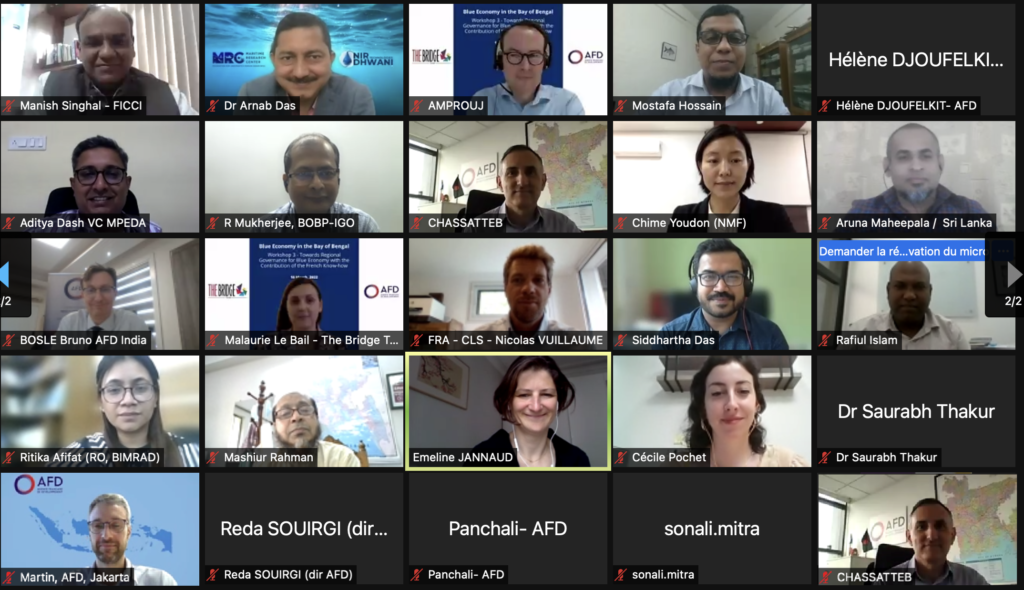
The spirit of this project is to organize a series of three workshops, co-hosted by The Bridge Tank and the French Development Agency. The first workshop, which was organized in November 26th, 2022, aimed at gathered strategic thinking of the participants ahead of developing a growing interaction between them and institutes and policy makers in the second workshop, in January 21st, 2022.
Read our report here and our executive summary here
Watch the replay of our workshop here
HORASIS 2022 USA – Biden’s first year, Ukraine, and EU’s leadership
During the 2022 Horasis USA Meeting, held March 4, The Bridge Tank participated in a conference on Joe Biden, the European Union and Ukraine, alongside Esko Aho, Former Prime Minister of Finland, Finland, Michael D. Brown, United States Shadow Senator, District of Columbia, USA, Yves Leterme, Former Prime Minister of Belgium, Belgium, Jed Rakoff, Senior Judge, United States District Court for the Southern District of New York, USA, and chaired by Jerry Hultin, Chair, New York Academy of Sciences, USA.
The discussion centered on the American president and his responsibility as the head of a leading democratic state, particularly in light of the war in Ukraine, as well as his potential future actions. How far will the Biden leadership go? What can we expect him to accomplish before the 2024 American elections?
Our President Joel RUET flagged that:
- Beyond US energy package, there ought to be some joint US-EU effort to quick land green finance,
- He called for joint technology programs and shared industrial platforms
- In line with Prime Minister Aho’s view that viewing NATO as an internal lose-win game between the US and the EU, Joel Ruet emphasized this situation has brought opportunities to jointly look at joint security issues, and have NATO evolve from defense to security,
- In reply to Jerry Hultin’s point on the view the Global South has on Russia’s assault to Ukraine and on China, Ruet mentioned that many African countries feel they have gained much of what they could from China and leveraged on this onto other countries, and that many of them now observe the new set of tools used on Russia, advising the “West” and notably the EU to engage into a conversation on these economic tools with its strategic partners in the South, not to alienate them, and, positively, to mutualise the treatment of the Russia-Ukraine crisis through real global tools,
- Lats but not least, echoing some concern by shadow Senator Brown, Joel Ruet offered that, even though they differ from one country to another due to history, so called ‘racial issues’ ought to be discusses more globally, not intra-societies.
Watch the full discussion here on our youtube.
The Bridge Tank and French Development Agency launch their 2nd workshop on Blue economy: implementation issues
On January 21, 2022, The Bridge Tank held the second workshop in a series of three with the mandate of the French Development Agency on blue economy in the Bay of Bengal (Bangladesh, India, Sri Lanka). Whereas the first workshop aimed at earmarking new blue economy priorities for various actors and nations in the Bay of Bengal, this second workshop: Blue Economy in the Bay of Bengal – Implementation Issues, aimed to open discussions between experts, policy makers and economic actors to identify gaps and challenges that impede a concrete and efficient implementation of blue economy value chains in the Bay of Bengal region. By linking research and operational approaches, this workshop conducted a collective inventory of data gathering and treatment systems, logistic and financial resources and gaps for sustainable blue economy activities (value chains and social and natural resilience) implementation and acceleration.
This workshop was comprised of two panels; the first panel, open to the public, was dedicated to exploring the importance of data collection towards the improvement of monitoring blue economy assets. The second panel, a closed-door round table, centered on engaging discussion between public and private entities, researchers and implementers towards the implementation of a sustainable blue economy.
Among the challenges identified, the speakers all agreed on the following 5:
- Lack of information and coordination within countries and in the region;
- Need for institutional capacity building;
- Enhance resources (fisheries) enhancement;
- Need for increasing public and private cooperation;
- Need for more regional joint research studies and projects.
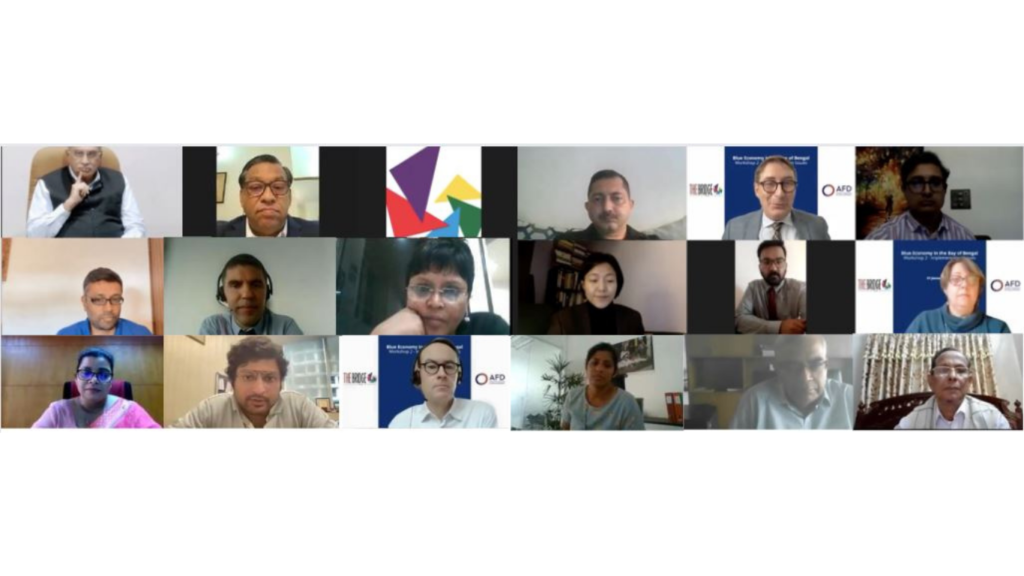
Panel 1: Data collection for improved monitoring of the blue economy’s assets
Speakers:
- Dr. Shailesh Nayak, National Institute of Advanced Studies (NIAS), India
- Ms. Akshita Sharma, Biodiversity Portfolio Manager, AFD Delhi
- Mr. Nishan Perera, Blue Resources Trust, Sri Lanka
- Mr. Abu Saleh Khan, Executive Director, Institute of Water Modelling, Bangladesh
Discussion participants:
- Dr. (Mrs.) Hélène Djoufelkit, Research Director of the AFD
- Arnab Das, Director, Maritime Research Center, India
- Md. Adbul Wahab, EcoFish Team Leader, World Fish Bangladesh Wing
- Dr. (Mrs.) Chime Youdon, Associate Fellows, National Maritime Foundation, India
- Saurabh Thakur, Associate Fellows, National Maritime Foundation, India
Panel 2: National framework for improved coordination between public, private entities, researchers and implementers
- Short presentation of take-aways from experts’ workshops and objectives by Joël Ruet, President of The Bridge Tank & Jacky Amprou, Regional Director for South-Asia, AFD
- Round table – 5 minutes pitch of projects, initiatives or solutions from each speaker
- Open discussion across panelists
Speakers and guests:
- Mr. Shri Aditya Dash, Vice Chairman, Marine Products Export Development Authority (MPEDA), India
- Ms. Dharshani Lahandapura, Chairperson, The Marine Environment Protection Authority (MEPA), Sri Lanka
- Mr. Khairul Majid Mahmud, Director, Dhaka Chamber of Commerce & Industry, Bangladesh
- Ms. Panchali Ellepola, Project Officer, AFD Sri Lanka
- Mr. Ameya Prabhu, Vice-President, Indian Chamber of Commerce, India
- Ms. Soma Mitra-Muckerjee, Director, Head of Projects, The Bengal Chamber of Commerce and Industry, India
- Mr. Pattabhi Rama Rao, Group Director, Ocean Observations, Modelling and Data Assimilation Group, Indian National Center for Ocean Information Services (INCOIS)
- Mr. Reda Souirgi, Country Director Sri Lanka, AFD
With the participation of the panelists from the panel 1.
The third and final workshop in this series will be held mid-March 2022 and will aim to identify political ambitions in the sector and willingness/possibility of regional cooperation with the contribution of the French know-how in the maritime field.


